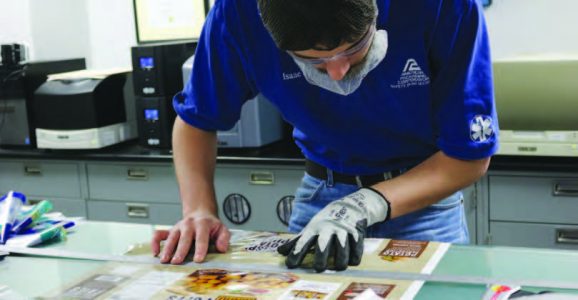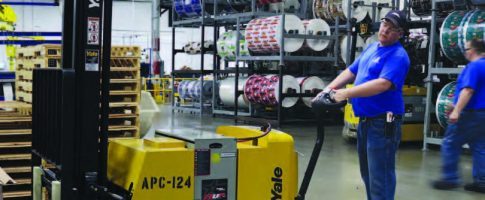
American Packaging in Story City landed a $750,000 contract and a new line of business because CIRAS helped the company prove that it could reliably produce plastic bags that a potential customer needed for frozen french fries.
Thom Marsh, American Packaging engineering manager, said CIRAS quickly proved via tests on the Iowa State University campus that a potential American Packaging customer would reliably be able to draw air out of the french fry bags. Without CIRAS, it would have cost the company $60,000 and three months to arrange for equipment and comparable testing at an outside lab, he said.
As it was, the $750,000 contract eventually grew into a $3 million business, Marsh said—and more potentially is on the way. “It opened up that entire marketplace for us,” he said. “So, we’re developing another opportunity right now with another company doing the same thing.” CIRAS experts routinely work with Iowa companies to arrange scientific tests exploring how various products perform under different conditions.
In American Packaging’s case, the experiments were completed only four days after Marsh’s original phone call expressing a need.
“The speed was great, and the cost was minimal,” Marsh said. “For an Iowa business to be able to grow by utilizing the equipment that’s there at the university, that’s phenomenal.”

Based in Columbus, Wisconsin, the 116-year-old American Packaging has five plants, including a flexographic printing and laminating facility in Story City. The Iowa factory largely makes flexible food packaging—rolls of printed plastic material that a customer can turn into sealed bags.
According to Marsh, the company experienced “significant growth” in Story City and has more than doubled its number of Iowa employees since the end of 2014. American Packaging also recently rejoined Iowa State’s Polymer and Food Protection Consortium and has been working since fall 2017 with a CIRASarranged company to reorganize the Story City factory and improve its workflow.
“We’ve done approximately $70 million in expansions during that period, in which we’ve added on building space as well as equipment,” Marsh said. “We’re hoping to systematize the way everything goes through, so it’s easy and simple for people to move around and do their jobs.
“We’re basically depending on CIRAS to help take us back to the efficiency we used to see.”
> For more information, contact Derek Thompson at thompson@iastate.edu or 515-419-2163.
A version of this article was published in the Summer 2018 edition of CIRAS News. To read more of that edition or others, please explore elsewhere on our website.